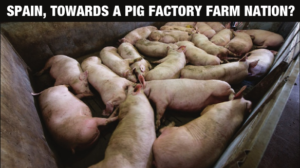Ineos and Cuadrilla benefited from the delay in publication and their permits should be revoked, says advocacy group
Washington, D.C. and Brussels — In 2015, the UK Government’s Air Quality Expert Group (AQEG) wrote a report citing the increase of national pollution emissions that would be caused by proposed shale development in Britain.
Before the report was finally published this week, Public Health England, UK’s official body for the improvement of the nation’s health and wellbeing, always concluded that “the risks to public health from exposure to emissions from shale gas extraction are low if operations are properly run and regulated.”
Now, the AQEG report warns that “Impacts on local and regional air quality have the potential to be substantially higher than the national level impacts, as extraction activities are likely to be highly clustered. Studies in the US have shown significant impacts on both local air quality and regional ozone formation, but similar studies have not yet been undertaken for the UK.“
In response, Food & Water Watch and Food & Water Europe Executive Director Wenonah Hauter issued the following statement:
“The apparent suppression of this important report has helped the fossil fuel industry’s plans to turn communities into sacrifice zones. This inevitable industrialisation that goes along with shale development and the need to take the cumulative impacts into account was clearly highlighted in several formal comments against fracking plans in the UK.
“However, the UK Government chose to ignore the known risks and instead, gave companies like Cuadrilla and Ineos the go-ahead for their plans to frack – mostly for plastics.
“The public knows the dangers fracking poses to our clean air and water, and its direct connection to plastic production and waste. Communities in Pennsylvania have already experienced dangerous air and water pollution linked to fracking and plastic production. And now, activists in the UK are taking bold action to protect their communities against these threats.
“Companies like Cuadrilla and Ineos would like to stifle this movement, and the current UK Government has chosen to oppose those advocating for a healthy climate and a livable world. It’s time for the government to do the right thing and revoke Cuadrilla’s and Ineos’s permits in light of the now published evidence.”



